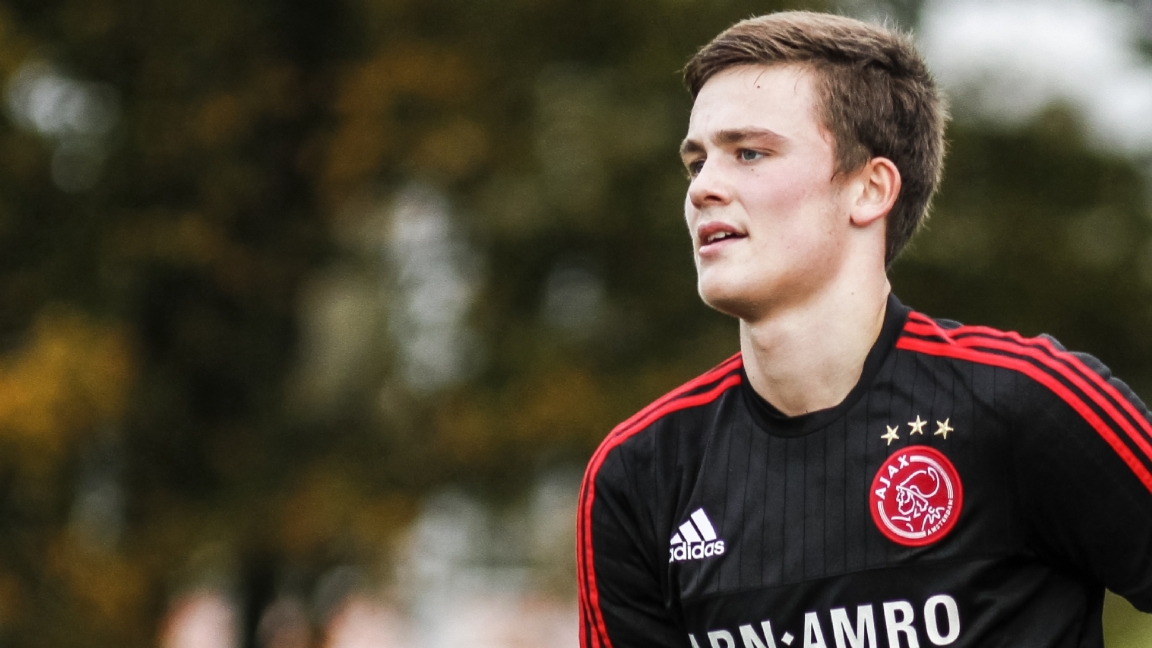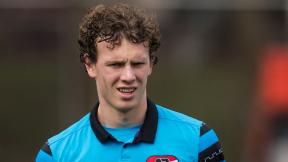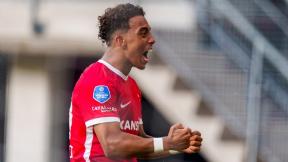![]()


Finn Berk decided to put an end to his football career last summer at the age of 22. The central defender played for years in the AZ youth academy and shared the dressing room there with Owen Wijndal, Calvin Stengs, Myron Boadu and Peer Koopmeiners, among others. In FaceTiming with Finn Berk speaks with trainers, agents, scouts and teammates he has met during his career. This week, Berk speaks with Terence Meuwese, who played for Ajax and the Dutch youth teams, but suffered from panic attacks and eventually ended his professional career prematurely.
By Finn Berk
How and where did your career start?
“I started playing football at a young age. My friends went to play at a local club nearby. Onze Gezellen in Haarlem became my first club, where I started as a goalkeeper. I always enjoyed going to training and competitions. Soon I was scouted by the then first division club HFC Haarlem. It was very friendly there and as players we got along very well. I had a really nice time there.”
Via HFC Haarlem you ended up at Ajax. How did it go?
“After HFC Haarlem went bankrupt, we were all suddenly clubless and we had to look for a new team. I went to AFC Amsterdam. After my good performance there, Ajax knocked on the door. That is of course a dream for every boy. The first years we were picked up with a van from school. I had a big bag with the Ajax logo on it. That does something to you as a young boy. A lot of people look up to you anyway. In my class I also had certain privileges: I was allowed to take tests later and sometimes miss certain lessons. It just works very often to your advantage if you have Ajax as a third name, haha!”

From youth academy at AZ to end of career at 22: ‘It would have been nice’
Read the candid interview with Finn Berk here.
How was that period sporting?
“The first years were great. I played a lot and also represented the Dutch youth teams. I had a few good friends in the team with whom I still keep in touch sometimes, such as Jurgen Ekkelenkamp and Sven Botman. We have played great tournaments with the Dutch national team. My best memory is a tournament in America. We were then, as pupils, treated like real professionals. We slept in a nice hotel, the fields were beautiful and we started signing our first autographs. I liked football life.”
Did you also have to deal with the other, more ‘dark’ side of football?
“Certainly. After a few years at Ajax I injured my groin. I was out for over a year, but faithfully continued to do my exercises every day to come back stronger. I soon noticed that in that year a major turnaround took place in my time at Ajax. The first years were pleasant. We were very young and the interests were not that great yet. From that season things changed. The agents started to attract players and the first contracts were handed out. In short, money came into play and then you notice that everything and everyone is changing.”
“I only noticed this when I came back from my injury. I suddenly had to adapt to a world in which I did not feel at home at all. I had to toughen up and learn to bite off. Fortunately I played right again after my injury, but after a few weeks it was hit again. I felt a stabbing pain in my groin. The attachment where my groin was attached had burst.”
What happened to you at that moment?
“There was intense sadness. As a footballer you have one dream and that is also emphasized every day by the trainers. Every time you make a mistake, are not sharp or just tired after being at the club for seven or eight hours, you will hear from the trainers. They give you the feeling every day that you are not good enough and that you have to do better. Very bad in my eyes.”
What do you find so harmful about that?
“Clubs must be aware that they have an exemplary function and that they also partly educate the players. I saw the trainers more often than my parents. After two years, all players had to go to the Ajax school that was located at the Toekomst. This shortened the travel time for the players. In the beginning I thought that would be nice, but soon I found out that my life really was nothing more than football. I saw no one anymore: my friends and the outside world were closed off. I didn’t even see girls at school anymore, haha!”
Did that also make you doubt a career as a professional?
“Because of my injury I felt that my dream was slipping further out of my hands. I knew I had the status of the best keeper of my generation, because I played for the the Dutch squad and Ajax expected the highest of me. After being injured for a few months, I noticed that life outside football is also fun. I was increasingly reluctant to go to the club. I hated the pressure and the constant expectations. I started to doubt more and more whether I still wanted to continue with what I loved to do, because the people around it were increasingly ruining the fun for me. I feel like it was the last few months. I gave everything one more time in the hope of finding the fun again.”
What was the last straw for you in the end?
“We played The Classic against Feyenoord at the Toekomst. The coach decided to let me play. I made two mistakes. How he then ranted after my first mistake really affected me. He yelled across the field, shouting, among other things, “Hot potatoes, Terence damn it!” Things didn’t get any better after the match in the locker room. I saw the match later on Ajax TV and the reactions were not sickening: ‘What kind of bungler is that?!’, ‘Does Ajax have nothing better?’ and ‘What a bastard, because of him we lost!’ I was shocked that I was treated like this as a sixteen-year-old boy and the fact that people from the outside made a fuss about me. I slept badly for a few nights. At the end of the year I took the plunge and handed in my bag.”
How was saying goodbye to the football world for you?
“I had a wonderful summer holiday for the first time. I completely relaxed and fully supported my decision to leave Ajax behind. Until I got a call from the main youth academy of FC Groningen. We knew each other from HFC Haarlem and he also lived there. He knew my story and then we had a few drinks in town. He wanted me to come and play at FC Groningen. I felt honored and had a good feeling with him. It felt like a new start and I wanted to try again.”
How did it feel to get back to work at an Eredivisie club?
“The contract signing day was fun. My parents, brother and girlfriend were present. We were given a tour of the FC Groningen stadium and concluded by signing the papers. Everything was ready, only my scribble still had to be added. The moment my pen touched the paper I felt pure panic. I started to doubt and felt that it was not right. But at that moment I did not dare to go back.”
How did those feelings go on?
“The first weeks took some getting used to and I felt alone. I was far from home and living with a host family. I didn’t see my girlfriend often, but I had a dream. After a few weeks I slowly got the same feeling as at Ajax. I lay in bed sweating and got anxious about going to the club. I was intimidated by the high expectations and scared to get screwed. One day my mother was with me in Groningen and she saw that I turned white. I then ran away from home without saying anything.”
“I didn’t even know where. I had a panic attack. I didn’t want to play football anymore, but I didn’t dare say so. Thousands of other guys would want what I had back then. Everyone supported me and always helped me to chase my dream. I couldn’t just throw that away, could I? My mother followed me that day and made an appointment with the staff of FC Groningen. We then decided in good consultation that we would dissolve the contract. I was relieved of the football world and all the stress it entailed.”

Myron van Brederode: ‘It showed that they had confidence in me’
Finn Berk also recently spoke with Myron van Brederode from AZ.
How are you now?
“I feel good. I have completed my studies in Psychology and now work in Amsterdam at the Johan Cruijff College as a teacher. The lessons include my own experiences with top sport and mental resilience. It’s nice that I can live with my girlfriend. I have finally finished professional football. I think it would be nice to do some research in the future into the behavior of exemplary figures, such as coaches with players. What all that shouting and behavior does to young boys and their upbringing.”
Are your anxiety complaints a thing of the past now?
“Not quite. You take something like that into the ‘normal’ world. As an example: after my time as a football player, I went to work in a phone shop. I had to answer the phone there and during my work I got the negative feeling that I linked to my time at Ajax. I started sweating and quit my job that same day. I took the fear and performance pressure from the football world to ‘normal’ life. I then did nothing for a while and started working with a kind of psychologist. In the future I would like to make the football world aware of the influence they have on players. Every step is one.”
